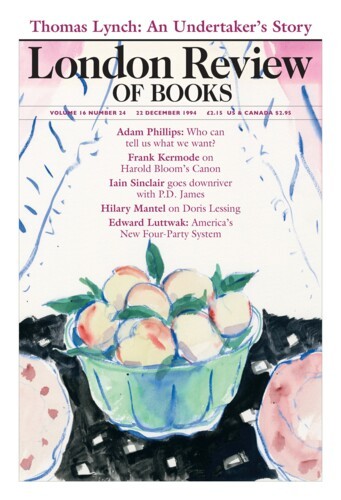If I drummed on the long Dahomey tambour,
I’d be bumbling, blind in ludicrous Western clothes,
that tambour’s wooden tubes stepped at the foot
like a half-closed sea captain’s telescope; I’d be
drumming of old things I can half-see: of bamboo-
stilted houses elongated by water reflections
as if I were paddling to the floating market of Ganvié
while fishermen cast nets in jelly-fish patterns.
So, almost, I drum on the Dahomey tambour.
My hands can’t make me see, and I haven’t looked
at Mali’s thatched houses, the mud rain-washed off
walls ribbed by uncooked bricks poking through.
Or I put Wenge music into my ears from Zaire
and watch pesticide machines huff injections
into a Kinshasa sewer; a woman’s hut in Topoke holds
two bamboo beds, food bowls on a stick-legged shelf.
Tapping blindly in rhythm on my work-table,
I see women across Africa stoop to chipped bowls
of peanuts and they grunt at their labour, the body rocking,
scale-arm burdened by the cupped hand’s loveliness.
With my hands tapping perhaps without sanctity
as on taut antelope skin, I glimpse wooden shanties
in Nouakchott, corridors of all doors, black-
swathed mothers holding babies with two hair clumps
on their shaven heads, one at the front, one at the back.
Unseeing, I must yet see, boat-making in Niger
where a steel bar burns potholes in wood slabs and the thin
pirogue spreads out like crocodile-chewed nougat.
The women are off to market, millet stalks on oxen:
swaggering on camels is reserved for the men.
The children scoop pits in sand, playing Marella
– or tic-tac-toe. Half-blinded by the male sun,
the boys dream of being horsemen. In Uganda
other children learn shopping, sugar-cane, gourds,
for merchandise; muzzled camels gloom by a sidewalk
hat souk in Libya, coned pots with cockerel tails.
Structural beams spike from baked earth mosques
in Burkina Faso, a palm trunk with flute-holes makes
a village ladder, woman climbing, hand reaching
for grain and fruit to dry on the roof of her house.
Skate fish flap down into Sahel sand, gasp,
and become dark tents; a Guinea woman’s hair
is the shape of a seal’s head; by the gushing springs
of Chaouen black robes float over sparkling cobblestones.
Elsewhere, money and talent whisper their telepathy
in coastal capitals, yet everywhere as names flash by
in my drumming women appear, washing clothes
under river bridges, un amour shadowed on the bankside.
Sunlight glares down those city avenues where blurred
humans hurry into their potential for richness:
in Conakry, pineapples enter a factory chunker;
Moroccan biologists work in impossible snowfalls
of cotton branches to improve yields; alluvial gold
is panned in Ilesha; a hand pours libations
into chemical pipettes in Lagos; it was Barclays put
an ugly wafer-biscuit bank on those oily streets.
White blocks front the Zanzibar straits of Tanzania,
where the canoe’s striped sail bounds out on its ropes,
fishing boats tug at the men launching them,
hulls leap in surf, and the flying water is the pleasure.
I ask you: ‘Pretend to have sight a moment, for the sun
under our lids will warm us.’ A real blind drummer
from the animist Dogon in Mali, taps on the skin
with curved stick, seeing all that I don’t see, and I see him.
Send Letters To:
The Editor
London Review of Books,
28 Little Russell Street
London, WC1A 2HN
letters@lrb.co.uk
Please include name, address, and a telephone number.

